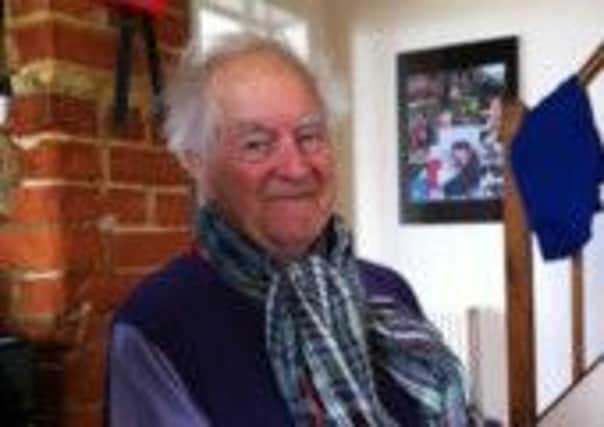Obituary: John Amis, The Scotsman’s music critic and broadcaster


JOHN Amis became a much-loved broadcaster on BBC Radio 3’s music programmes in the Fifties and Sixties and then gained a new audience when he joined the popular R4 panel show My Music hosted by Steve Race. Amis, who was a cousin of the novelist Kingsley Amis, brought to all these programmes an air of relaxed authority. His knowledge of music was extensive and wide-ranging, but he conveyed in his talks and interviews a deep love of music and musicians.
His connection with Scotland dates from 1945 when he succeeded William Glock as the London music critic of The Scotsman. He filled the post for more than 15 years and often came north to cover important concerts with the Scottish National Orchestra and at the early Edinburgh Festivals.
Advertisement
Hide AdAdvertisement
Hide AdAll his notices reflected his command of the subject and the wide experience that he had gained in the music business. Reviewing a Warlock recital in 1954, Amis wrote an incisive review in The Scotsman: “But the composer showed an ability, like Benjamin Britten, of suddenly transforming the commonplace into inspiration. It is a kind of X-ray quality, searching out the meaning of the verse.”
John Preston Amis was the son of a City banker. At Dulwich College, Amis developed mastoiditis, losing the hearing in his left ear. A contemporary at the school was the pianist and songwriter Donald Swann, with whom Amis forged a life-long friendship.
On account of his partial deafness, Amis did not do military service but got a job as secretary to the London Philharmonic Orchestra Arts Club, bringing him into contact with such contemporaries as Glock and Michael Tippett. That was followed by work at the National Gallery managing the historic lunchtime recitals during the war given by Dame Myra Hess and other eminent soloists.
From 1945, Amis joined Glock as music critic on The Scotsman. A few years later, he was to succeed Glock while at the same time acting in the marketing department of Sir Thomas Beecham’s new Royal Philharmonic Orchestra. Amis was also involved in organising the famous Hoffnung Festival at the Royal Festival Hall starring the exuberant Gerard Hoffnung.
It was a busy life and he became further in demand in the early Fifties when he organised the Bryanston and Dartington Summer Schools. It was then that Amis became a regular on R3.
He made valuable contributions to the Sunday morning Music Magazine and a memorable Monitor programme for BBC television devoted to the cellist Paul Tortelier. Other memorable television work included documentaries on the Amadeus Quartet, Gustav Holst, (in which the composer’s daughter Imogen was interviewed) and a celebration of William Walton’s 70th birthday.
From 1974 to 1994, Amis joined the classic BBC panel game My Music with the celebrated comedy writers Dennis Norden and Frank Muir. He succeeded the singer David Franklin as Muir’s partner and Amis came into his own.
He had a wonderful way of spinning out a yarn and a host of backstage stories that were ideal for the programme. His singing was a touch erratic for the concluding round, when each of the quartet had to sing. It was significant that the producer always ensured the final song was sung by the Scottish baritone Ian Wallace.
Advertisement
Hide AdAdvertisement
Hide AdAmis, with his dry wit and more avuncular manner, proved ideal for the show, when the BBC made few programmes for television.
Amis’s friends in music were legion. He had lunched with Britten when the composer got up from the table and returned saying: “There, it’s done.” He had just completed Peter Grimes. Amis bravely supported Tippett when he was jailed in Wormwood Scrubs during the war as a conscientious objector.
He also had a delightful way of telling a story against himself. He had travelled, with some difficulty, to a provincial German opera house for an audition in the late Forties. After he had sung the director asked: “Do I understand that you have done music criticism? Then why don’t you stick to it.” He returned to The Scotsman with a large smile.
He wrote for this paper with much insight and musical perception. Of the great German baritone Dieter Fischer-Dieskau, Amis wrote after a festival recital: “Providence gives to some singers a beautiful voice, to some musical artistry, but to Fischer-Dieskau Providence has given both. The result is a miracle and that is just about all there is to be said about it. It is difficult therefore to write a long notice about Fischer-Dieskau. Just write ‘finis’, go home, and thank one’s stars for having had the luck to be present.”
His marriage to the violinist Olive Zorian was dissolved. He is survived by his partner Isla Baring.